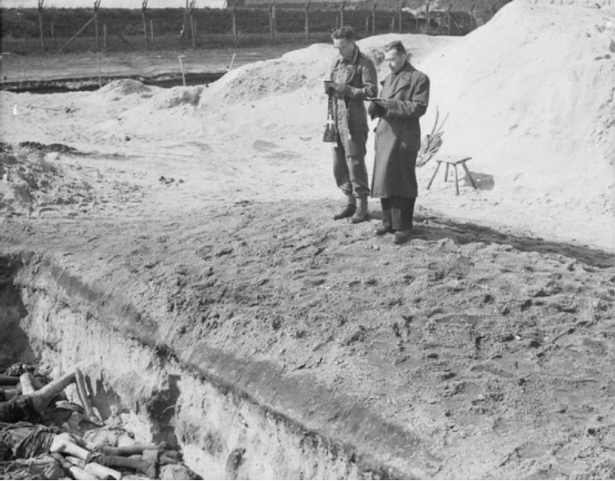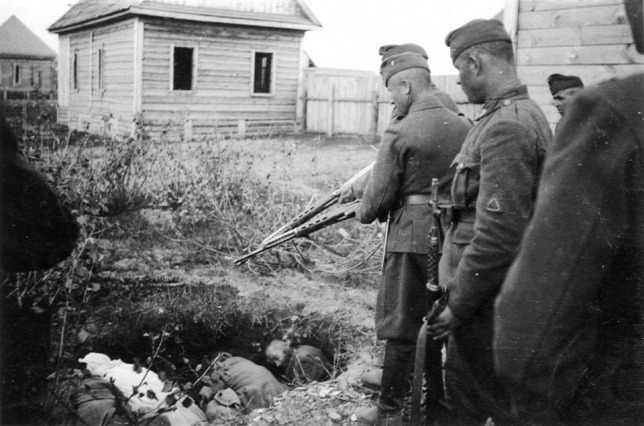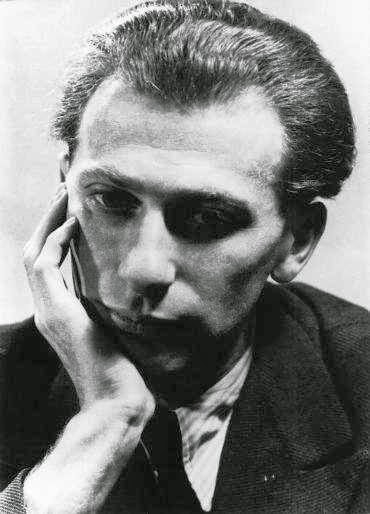Miklós Radnóti: I LIVED UPON THIS EARTH IN SUCH AN AGE…
Translated from the Hungarian
& Edited
By Thomas Ország-Land
The last of the three poems below was discovered in a mass grave of Jewish slave labourers murdered during a ‘deathmarch’ by a regular unit of the retreating Hungarian Army at the close of the Second World War. The poem, composed in careful, even handwriting and complete with printers’ instructions, was contained in a small notebook found on the body of its author, Miklós Radnóti (1909-1944). The poet had set out to record the chaos and brutality of the Holocaust in magnificent classical metre. His work in English translation is winning a robust international reputation. It has also made Radnóti a beloved literary figure in his native Hungary – although his statute has been repeatedly damaged and his poems publicly torched in an orgy of book burning by a neo-Nazi rabble.

Bedrgen-Belsen, 1945
1.
AFTERNOON, OCTOBER
Beside me, Fanni asleep beneath the oak-tree.
She had entrusted me with her last caress
to guard her peace. But so many acorns are leaping
and dropping, I feel I must quarrel with every leaf.
The autumn sunshine brightly winks through the leaves.
But fiercely humming, the menacing wasps are circling,
provoking the bickering leaves to chase the acorns
and acorn too chases acorn, unable to wait.
Now Fanni awakens. The blue in her eyes speaks of dreams.
Her delicate hands might have been drawn for an icon.
She tries to make peace between me and the foliage
and strokes my lips and touches my front teeth,
to keep me quiet. A silence ensues. It will
give way to the dribble and hiss of the raindrops, six days
of rainfall to soak the acorns away and fasten
upon us the month of November, like a black ribbon.

German invasion forces in Hungary 1944
2.
FRAGMENT
I lived upon this earth in such an age
when folk were so debased they sought to murder
for pleasure, not just to comply with orders.
Their faith in falsehoods drove them to corruption.
Their lives were ruled by raving self-deceptions.
I lived upon this earth in such an age
that idolized the sly police informers,
whose heroes were the killers, spies and thieves –
The few who merely held their peace or failed
to cheer were loathed like victims of the plague.
I lived upon this earth in such an age
when those who risked protest were wise to hide
and gnaw their fists in self-consuming shame –
The country grinned towards its dreadful fate
insane and wild and drunk on blood and mire.
I lived upon this earth in such an age…
The mother of an infant was a curse
and pregnant women were glad to abort.
The living envied the corpses in the graves
while on the table foamed their poisoned cup.
……………………….
I lived upon this earth in such an age…
when even the poet fell silent awaiting, expecting
an ancient, terrible voice to resound – for one
alone could utter a fitting curse on such horror,
that scholar of weighty words: the prophet Isaiah.

Hungarian invasion forces in Ukraine 1944
3.
DEATHMARCH
Collapsed exhausted, only a fool would rise again
to drag his knees and ankles once more like marching pain
yet press on as though wings were to lift him on his way,
invited by the ditch but in vain, he’d dare not stay…
Ask him, why not? maintaining his pace, he might reply:
he longs to meet the wife and a gentler death. That’s why.
But he’s insane, that poor man, because above the homes,
since we have left them, only a scorching whirlwind roams.
The walls are laid. The plum tree is broken. And the night
lurks bristling as a frightened, abandoned mongrel might.
Oh, if I could believe that all things for which I yearn
exist beyond my heart, that there’s still home and return…
return! the old veranda, the peaceful hum of bees
attracted by the cooling fresh plum jam in the breeze,
the still, late summer sunshine, the garden drowsing mute,
among the leaves the swaying voluptuous naked fruit,
and Fanni waiting for me, blonde by the russet hedge,
while languidly the morning re-draws the shadow’s edge…
It may come true again – see, the moon, so round! – be wise…
Don’t leave me, friend, shout at me! shout… and I will arise!

